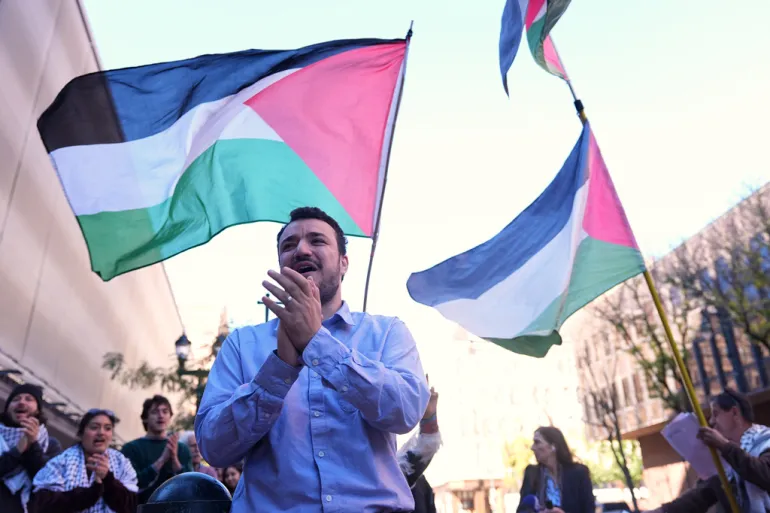Palestinian activist’s legal team fights to maintain freedom amid US deportation proceedings
Mahmoud Khalil’s Case Returns to US Appeals Court
Lawyers for Mahmoud Khalil have asked a US appeals court to uphold a lower court’s decision that freed the Palestine solidarity activist from immigration detention. The case has drawn attention not only for its legal significance but also for its broader implications regarding activism and civil liberties in the United States.
Khalil, whose activism at Columbia University last year led the US government to pursue his deportation, addressed supporters outside the Philadelphia courtroom after Tuesday’s hearing. He described the case as a “test for everyone’s rights,” signaling the potential precedent it could set for other activists facing similar challenges.
Background: Khalil’s Activism and Detention
Mahmoud Khalil is a prominent Palestine solidarity activist who gained attention for organizing and participating in events at Columbia University highlighting human rights issues in the Palestinian territories. His activism included peaceful demonstrations, educational campaigns, and public speaking engagements.
Following these activities, US immigration authorities detained Khalil, initiating deportation proceedings based on claims related to his activism. His legal team has consistently argued that the detention and deportation efforts are politically motivated and infringe upon his constitutional rights.
The Lower Court’s Release Order
A lower court previously ruled in favor of Khalil, ordering his release from immigration detention while the legal proceedings continue. This decision emphasized the importance of due process and the protection of civil liberties, particularly for individuals engaged in lawful activism.
Appeals Court Hearing
During Tuesday’s appeals court hearing in Philadelphia, Khalil’s lawyers presented arguments urging judges to maintain the release order. They highlighted the legal precedent that protects activists from retaliatory deportation and stressed that Khalil’s case is emblematic of broader rights issues affecting many individuals in the United States.
Supporters gathered outside the courthouse, holding signs and chanting slogans in solidarity. Khalil addressed the crowd, expressing gratitude for the public support and reiterating that his case is about defending the rights of all activists and ensuring freedom of expression.
Legal and Civil Rights Implications
Legal experts note that Khalil’s case has far-reaching implications for civil rights, immigration law, and activism in the US. If the appeals court overturns the release order, it could set a precedent for more aggressive enforcement against politically active immigrants.
Conversely, upholding the lower court’s decision would reinforce protections for lawful activism and emphasize the principle that political expression should not result in punitive immigration action.
US Immigration Law and Deportation Proceedings
Deportation proceedings in the United States are governed by complex immigration laws, including the Immigration and Nationality Act (INA). Advocates for Khalil argue that the government’s case relies on a selective interpretation of these laws, using activism as a justification for removal rather than any legitimate immigration violation.
His attorneys have argued that deportation based on political activism is inconsistent with US constitutional protections, including freedom of speech and assembly. The case highlights tensions between national security or policy concerns and civil liberties.
Public Reaction and Activism Community Response
Khalil’s case has attracted widespread attention among activists, human rights organizations, and the academic community. Statements of support have come from universities, NGOs, and civil liberties groups, emphasizing that his detention threatens the broader rights of all activists in the US.
Online campaigns and petitions have circulated, calling on the appeals court to maintain the release order and safeguard Khalil’s rights. Many view this as a crucial moment for defending free expression and activism within the country.
Broader Significance
Observers suggest that Khalil’s case could influence future policies regarding activist immigrants and set important legal precedent for how courts handle politically sensitive deportation cases. It raises questions about the balance between government authority, national security concerns, and individual civil liberties.
Moving Forward
The appeals court is expected to issue its decision in the coming weeks. Meanwhile, Khalil remains free under the lower court’s order, continuing his advocacy and engaging with supporters. Legal analysts are closely watching the proceedings, noting that the outcome could shape US immigration and civil rights policies for years to come.
